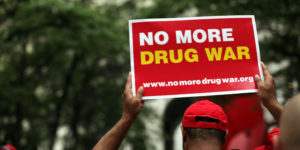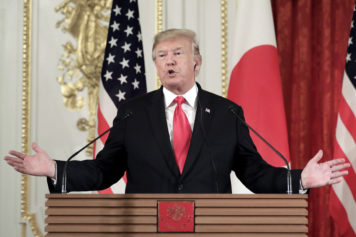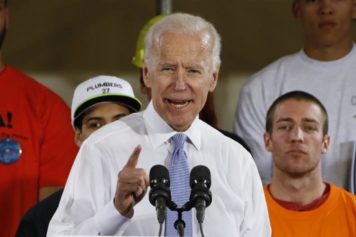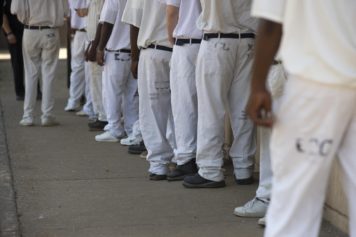The war on drugs is a human rights violation and drugs must be decriminalized, according to a United Nations office. This could mark the beginning of the end of a war on people of color that has fueled the U.S. mass incarceration boom.
The United Nations Office on Drugs and Crime disseminated a report calling for “decriminalizing drug use and possession for personal consumption…consistent with international drug control conventions” and taking it a step further by urging that such an action “may be required to meet obligations under international human rights law.”
As Daniel Denvir reported in Salon, the document concluded that the tough-on-crime stance towards drug use “contributed to public health problems and induced negative consequences for safety, security, and human rights,” including incarceration, the spread of HIV and Hepatitis C, drug overdoses, and higher risks of sexual and physical abuse.
The paper was then censored, but it was too late at that point, as one cannot place toothpaste back in its tube. As the BBC, which published the report in full, noted, sources at the UNODC claimed the document was not sanctioned as policy by the agency, and “a middle-ranking official” was offering a professional viewpoint. However, the document, on agency letterhead, claims it “clarifies the position of UNODC to inform country responses to promote a health and human-rights approach to drug policy”.
According to the BBC, the paper was reportedly developed by Dr. Monica Beg, head of UNODC’s HIV/AIDS section, in light of mounting pressure by the law enforcement-oriented body to join other UN agencies in promoting drug decriminalization in advance of the UN General Assembly special session on drug policy in 2016. For example, UN High Commissioner for Human Rights Zeid Ra’ad Al-Hussein and UNAIDS Executive Director Michel Sidibé have strongly criticized criminalization.
The document further states that, “Treating drug use for non-medical purposes and possession for personal consumption as criminal offenses has contributed to public health problems and induced negative consequences for safety, security, and human rights.” The UNODC denies reports concerning pressure to withdraw the paper, arguing the paper was not a formal or final document.
Support around the world for the war on drugs is falling apart, and reform of America’s drug laws—decriminalization combined with legalization and regulation of controlled substances–would have considerable ripple effects both at home and abroad.
Meanwhile, as Vox reports, while only one-fifth of the nation’s 2.2 million prison population is incarcerated for drug-related offenses, ending the war on drugs would still make a big difference. A report from the Urban Institute noted that at 206,000 prisoners, the federal prison system is the largest jailer in the nation. In addition, around half of federal prisoners are so-called drug offenders, as opposed to 15.7 percent of state inmates.
As authors Ryan King, Bryce Peterson, Brian Elderbroom, and Samuel Taxy indicate, reducing the length of drug trafficking sentences by half would reduce the federal prison population by about 18 percent by 2023. In contrast, doing so for violent crimes would cut the federal rolls by a mere 1 percent, demonstrating the sensibility of drug reform. Ending the war on drugs would also dry out the black market for drugs and sap the revenue source of the gangs who deal in them, thereby curbing violent crime as well.
Although ending the war on drugs is not an absolute panacea for the damage that mass incarceration has inflicted on poor, Black and Brown people, or the dislocation of their families and destruction of their communities, it certainly would represent a step in the right direction.



